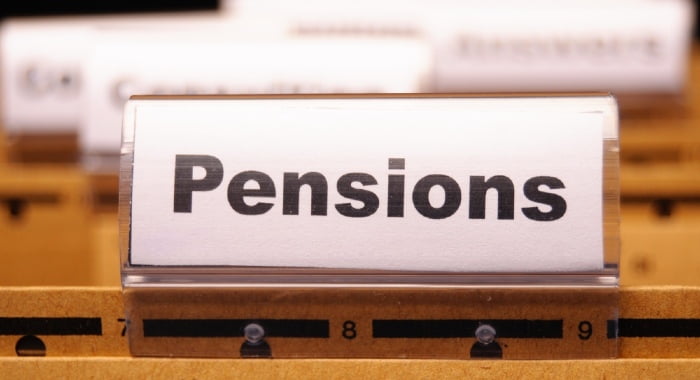Pensions are an easy target as the Chancellor comes under increasing pressure to restore the public finances in his budget on Wednesday.
As Rishi Sunak refuses to rule out hitting investors, pension savers and shoppers, households should prepare for another round of the Chancellor’s tax raids. Prompting fears that Britons’ wallets will be squeezed in the budget, Mr Sunak has warned there is hardship ahead to help the country ‘build back better’ after the pandemic.
Given the savings on offer to the Treasury, pensions could once again be in the firing line, but any change would come at a great cost to workers already struggling with a £20bn freeze on income tax thresholds and a £36bn raid on salaries to fund the NHS.
As reform of tax relief on pensions for higher-rate taxpayers has long been contemplated by Treasury officials, Mr Sunak is reported as having looked at changes since last November. Currently, in excess of £40bn per year is spent on tax relief.
If the Treasury replaced higher-rate relief with a flat 20pc, up to five million workers could pay an extra £2,000 per year in tax. According to the Pensions and Lifetime Saving Association (PLSA), as much as £10bn would be taken from savings and diverted to the Treasury, thereby reducing pensions for millions. Alternatively, it is estimated a flat rate of 25pc would save £4.8bn.
According to the stockbroker AJ Bell, a 50-year-old earning £80,000 per year and paying 4pc of salary into a pension would be £14,400 worse off under a 20pc tax relief system by the time they reached 66. The firm’s Tom Selby stated this would be a ‘direct attack’ on middle Britain, hitting people who ‘do the right thing’ and save for the future.
Annual allowance could be cut
The Chancellor has also been pressured to review the inheritance tax-free status of personal pensions. Carl Emmerson, of the think tank Institute for Fiscal Studies (IFS), has called the rules ‘indefensibly generous’ and says pension pot heirs should pay death duties. A survey by the stockbroker Interactive Investor found a change to the rules was the number one fear among pension savers.
The second greatest fear was the abolition of the 25pc tax-free pensions cash lump sum, a key feature of retirement planning. The PLSA reckoned its abolition would increase the Treasury’s revenues by £4bn.
Pension savers could also face a reduced limit on how much they can pay into their pensions and receive tax relief each year, known as the ‘annual allowance’. Currently, this is £40,000 but a cut to £30,000 would substantially reduce the amount workers can save towards retirement and how much they receive in tax relief.
Sarah Coles, of the stockbroker Hargreaves Lansdown, says this would save the Government a generous amount of tax relief. However, the flexibility to invest more is crucial for individuals who have had irregular income during their career and need to compensate for lost time.
Possible rise in fuel duty
The Chancellor has also had his eye on changes to capital gains tax paid on profits from investments held outside Isas and pensions, second homes and other valuable assets. According to the Office of Tax Simplification (OTS), raising rates in line with income taxes would raise £14bn per year.
The Prime Minister has refused to rule out a rise in fuel duty, which would end a 10-year freeze. Following a review of the archaic taxes on beer, cider, wine and spirits, alcohol duty is another levy that is likely to increase, although rates have been frozen since 2017.
Last month, Mr Sunak confirmed several tax increases, including a 1.25pc rise in National Insurance rates for employees, employers and the self-employed to raise £12bn per year. Working pensioners will also pay 1.25pc on their earned income from April 2023.
Dividend tax rates will also rise by 1.25pc next April to 8.75pc for basic-rate taxpayers and 33.75pc for higher-rate taxpayers. This will raise £600m, although the £2,000 allowance will remain the same.






